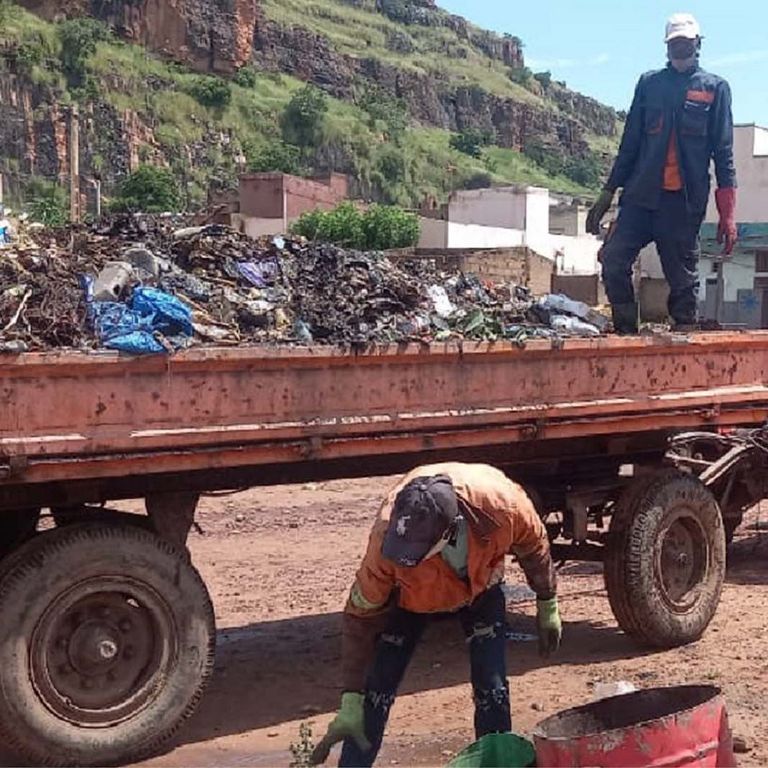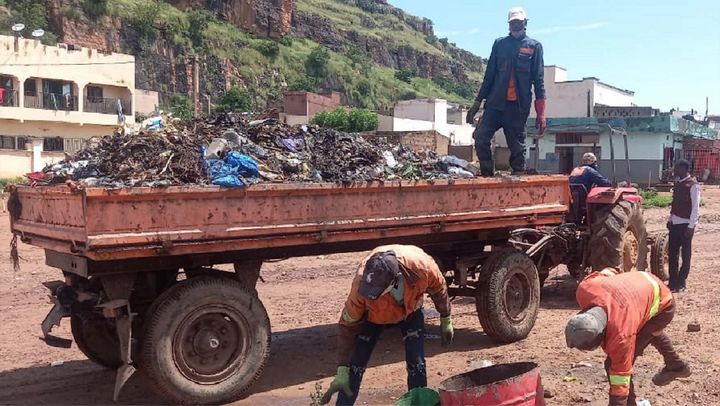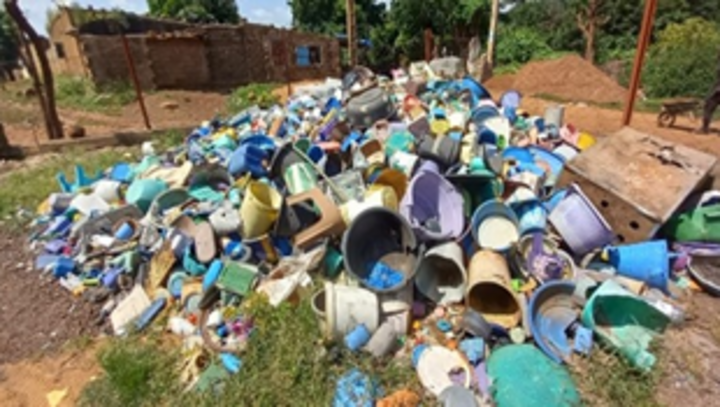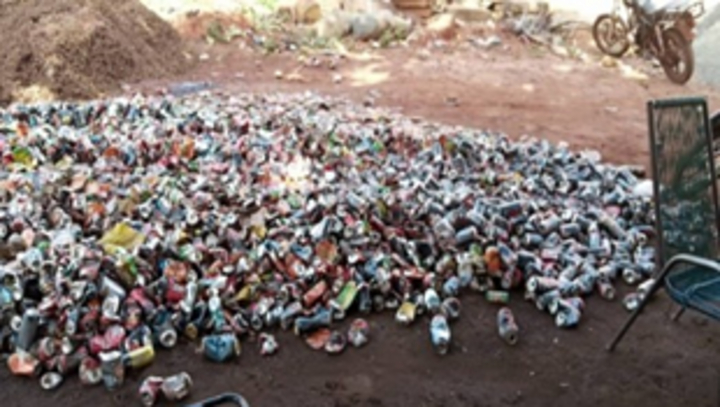Wastewater-Waste-Programme “Clean Mali” – Mali Sanya
Sanitation and waste management services in Mali remain underdeveloped, with access in rural areas at just 20% and in urban areas at 53%. Challenges include increasing pollution of surface and groundwater, lack of sanitation infrastructure, and insufficient waste management systems. A large proportion of waste remains uncollected or is illegally dumped in open areas. Household waste is often burned in the open, releasing toxic gases that negatively affect public health. At the few existing official landfills, waste is predominantly sorted by women (98%) who sell recyclables at low prices and have limited access to formal employment.
The “Mali Sanya” (Clean Mali) programme promotes sustainable development in peri-urban centres and small towns by improving drinking water, sanitation, and waste management through a circular economy approach. It focuses on three key outputs:
Strengthening institutional conditions for sanitation and circular economy development
Increasing knowledge of GHG-reducing sanitation and circular economy practices within municipal associations
Expanding formal employment in environmentally sound sanitation and waste management
Dorsch Impact supported SMEs and start-ups in developing and implementing at least five innovative circular economy business models, with a focus on creating job opportunities for youth and women in Mali.

Disciplines
- Skills and Economic Development
Client
Deutsche Gesellschaft für Internationale Zusammenarbeit (GIZ) GmbH
Duration
From 2022 to 2023
Location
Mali
Project Activities
1. Evaluation of Pre-Mapping and Market Study
Analyse existing GIZ study on SMEs and start-ups in waste and wastewater management
Conduct field surveys to assess supply, demand, and resources
Identify job creation potential and economic value of the sector
Define training needs for employment in the circular economy
Develop a job creation strategy for the sector
2. Identification of Innovative Business Models
Survey national and international business models in the sector
Compile best practices and viable financing schemes
Prepare 10 factsheets on selected business models and financing options
3. Selection Procedure
Develop criteria for selecting promising start-ups and SMEs
Select 8–10 companies with high innovation potential
4. Business Development and Support
Provide tailored coaching to assess and strengthen financial and administrative capacities
Support legal formalisation of selected enterprises
Offer technical and commercial advice to develop business plans and scale operations
Organise workshops and training sessions
5. Knowledge Management
Develop methodology to disseminate success stories
Produce and publish content (videos, graphics, radio)
6. Reporting
Regularly report progress and results to GIZ
Contributing to the UN Sustainable Development Goals
We are committed to making a positive impact and supporting the UN Sustainable Development Goals (SDGs). This project contributes to the following SDGs:
Project Images


